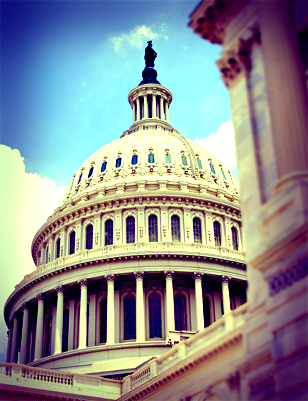Tomorrow the Senate will have to vote again whether to give President Obama fast-track authority to negotiate trade agreements that will have an enormous impact on the U.S. economy and future job prospects for U.S. workers — and significantly constrain congressional authority over U.S. immigration policy.

Republican leaders, who seem curiously eager to facilitate this deal for the president, have bent over backwards to assure the many skeptical Republican members that neither Trade Promotion Authority (TPA, or "fast-track" authority) nor the Trans-Pacific Partnership (TPP) pact, which would be the next trade agreement to be rushed through the approval process on an up or down vote without possibility of amendments, includes or allows changes to immigration or visa law.
Some might be willing to trust our leaders on that, but in fact the biggest danger is not that the TPA bill and the TPP treaty make direct changes to immigration law. The biggest danger lies in the other deals that the president's team is working on. Provisions in these deals do change immigration laws, and also would prevent Congress from adjusting immigration laws that are currently being abused. That is the very goal of all trade pacts — to lock in open access to markets under current or more favorable terms, so that it cannot be changed. (For more on the implications of trade agreements for immigration law, see here.)
If we were just talking about free trade in widgets, these treaties would not be particularly relevant to immigration law. But other countries are pushing hard for open access to U.S. job markets, too, euphemistically calling it "trade in services" and the "movement of natural persons".
Our current visa rules allow foreign-owned labor contractors who "trade in services" to bring in hundreds of thousands of foreign guestworkers each year. These rules, which the president's trade negotiators would like to freeze in place, have permitted employers to replace some of their U.S. workers with foreign guestworkers, not because the guestworkers have better skills, but because they are cheaper (see the testimony at a recent Senate Judiciary committee hearing). Those who think the current guestworker rules are adequate certainly will not be troubled by freezing them in place, but there is a growing bipartisan consensus that Congress should change the law to curb abuse.
One of the treaties being negotiated by President Obama's team is known as the Trade in Services Agreement (TiSA). The contents were secret until it was obtained by Wikileaks. The documents reveal that the administration hopes to greatly expand access for foreign workers in dozens of occupations including engineering, veterinary medicine, management consulting, construction, waste disposal, hotel and restaurant work, transportation, and recreation. This is not just about computer programmers and nurses; TiSA would facilitate the movement of unlimited numbers of skilled and unskilled workers from participating countries.
As has been the case with past trade agreements, if Congress or even state lawmakers sought to make changes in laws, for example establishing or adjusting licensing, skill, or educational requirements that effectively closed off opportunities for say, Malaysian machinists, Honduran welders, or Mauritanian dentists, that could instigate a trade dispute that would have to be decided by an international tribunal established by the treaty. Historically, the United States has not come out on top in these disputes and can be sanctioned if the laws are not dropped.
The effect would be that control over our guestworker programs and other occupational regulations would shift away from our representative bodies to an international tribunal of trade regulators whose mission in life is to enforce the treaty provisions allowing the international movement of people and open access for service-providing corporations.
Senators should remember that a vote in support of President Obama's trade agenda is a vote to constrain their constitutional authority to adjust immigration laws so that they serve our national interest, not private or foreign interests.
